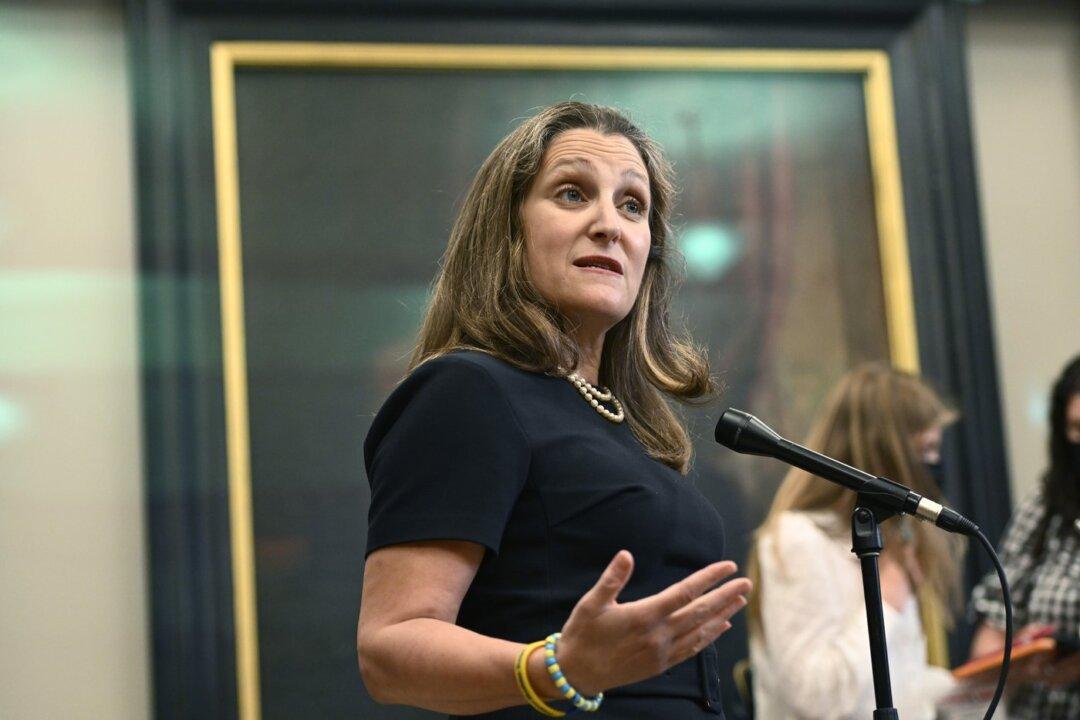Amid news that inflation in Canada rose to 3.3 percent in June, Finance Minister Chrystia Freeland attempted to alleviate fears by highlighting the “underlying strength of the Canadian economy.”
“Inflation is coming down, jobs are being created, and the Canadian economy is strong and resilient,” the deputy prime minister said during a press conference in Alberta on Aug. 15.





